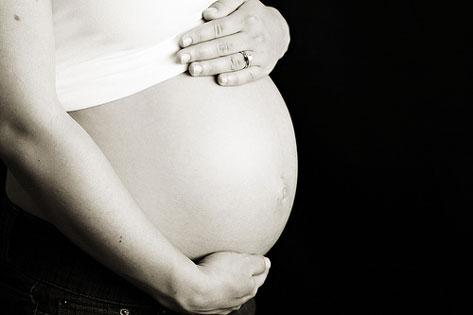Professor Clare Collins of the University of Newcastle studied the eating habits of 7000 Australian women to see if they were missing out on important nutrients as a result of avoiding "risky" foods that potentially carried listeria.
Oysters, smoked fish, delicatessen meats, salad bar salads and pre-cut fruit are also considered high risk for carrying the listeria monocytogenes bacteria.
The bacteria can lead to listeriosis, a rare form of food poisoning that can cause miscarriage, stillbirth, premature birth and neonatal infection.
Because of hormonal changes during pregnancy, mums-to-be are at particular risk of infection, Prof Clare says.
Reporting her findings in the journal Public Health Nutrition, Prof Clare said her study found that women who ate the most listeria foods reported more frequent miscarriages, but had high levels of the nutrients needed to have a healthy baby.
Conversely, those who ate moderate or low amounts of listeria foods had less miscarriages but also lower levels of nutrients like calcium, folate and Omega 3 acids.
"In those with moderate and low exposure there was no excess risk of miscarriage but the problem was their nutrient intakes were then worse," Prof Clare said.
"We're saying pregnant women need to be given more advice on how to eat healthy.
"If all they hear is risky foods, and they drop out all the potential listeria foods, their micro nutrient intake is going to be really bad.
"They will potentially then be at risk for things like neural tube defects. Or they'll put their own health at risk," she said.
She said the existing listeria guidelines for pregnant women were entirely legitimate but needed to be rewritten to provide more information about what could be eaten, as well as what should be avoided.
"It would be nice to see the guidelines coupled with evidence of what pregnant women can eat to meet their nutrient requirements," she said.
There were 65 cases of listeriosis in Australia in 2008, 12 during pregnancy and one that was fatal.



















__small.png)










